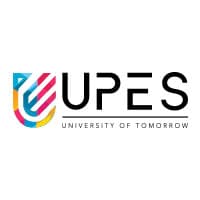MS Ramaiah University of Applied Sciences BBA 2025
Approved by AICTE & UGC | QS I-Gauge Gold rated University | Scholarships available for Meritorious students | Application Deadline : 20th Apr’25
BMS is an undergraduate degree programme of three years duration. The degree is offered by more than 300 educational institutes in India. It is an ideal course for someone interested in studying business management. The BMS curriculum covers various topics such as marketing management, operations management, finance, human resources, and organisational behaviour.
Latest: Top B.M.S Colleges in India
Don't Miss: Courses after 12th Commerce, Arts and Science
Recommended: Best Career Options after 12th Arts, Science & Commerce

The course includes a combination of theoretical and practical sessions to provide students with a comprehensive understanding of management principles, leadership skills, and business management strategies. Candidates who have completed their 10+2 from a recognised board in India.
Some of the popular BMS degree colleges in India are KIIT University, Jain University, KC College Mumbai, and GGI Ludhiana. Students should check the BMS course eligibility either on the official website of the institute or on the programme brochure released by the colleges.
Eligible candidates can apply for admission to the BMS degree, many institutes provide admissions based on entrance examinations. CUET UG is a popular national-level entrance exam. HR Manager, Business Developer Manager, and Business Consultants are the popular job roles available.
BMS degree full form is Bachelor of Management Studies, it is a three-year undergraduate degree programme. Topics covered in the course curriculum are Introduction to Financial Accounts, Business Law, and Business Statistics. After completion of a BMS degree, students have a wide range of career opportunities in both public and private sectors.
| Particulars | Values |
|---|---|
Degree Name | BMS |
BMS Full Form | Bachelor of Management Studies |
BMS Course Duration | 3-4 years |
BMS Course Eligibility | 10+2 with a minimum of 50 per cent |
Degree level | Undergraduate level |
BMS Course Admission process | Through entrance exams & merit-based direct admission |
BMS Course Fees | Rs. 50,000 to Rs. 3 lakh |
Career options after BMS | Human Resource Manager, Business Development Manager, Business Consultants, Professor/Teacher, Business Expected starting Analyst |
Top Recruiters | Capgemini, Infosys, ICICI Prudential, sutherlands, TCS, Google, and Coppergate |
Average Salary | Rs. 7.4 LPA (Business Development Manager) |
BMS degree fee differs depending on various factors. It may vary based on the location and college selected by the candidate. Students should check the BMS course fees of the selected college. Government BMS institutes are often less expensive as compared to private institutes. The average fees for a BMS course range from Rs. 45,510 to Rs. 5.10 Lakhs.
BMS course is one of the most sought-after courses in the management field and many students aspire to pursue this course. BMS graduates are highly desired in both private and public sectors across the country. Candidates interested in becoming marketing managers, human resource managers, and financial analysts can choose the BMS course.
Also read: Online MBA vs Executive MBA: Choose the Better
The eligibility criteria for BMA can vary as per the institution. Candidates can check the eligibility details on the official website before applying for admission to the Bachelor of Management Studies. For students' reference, we have provided the basic eligibility details for the course.
Applicants must possess certain skills to get a boost in their careers. Having these skills will also help them in their academics. Some of the popular skills are good communication, teamwork, organisational skills, and interpersonal skills. Graduates can get a good position in an organisation. Listed below are some important skills:
Approved by AICTE & UGC | QS I-Gauge Gold rated University | Scholarships available for Meritorious students | Application Deadline : 20th Apr’25
Ranked #1 Among all Private Indian Universities in QS Asia Rankings 2025 | Scholarships worth 210 CR
After fulfilling the eligibility requirements of the course, students can apply for BMS admissions. The admission procedure is mostly based on entrance examinations such as CUET UG. Listed below are the important admission guidelines for admissions to the BMS degree programmes.
Read more: Which One to Choose: Regular MBA vs Online MBA?
Admission to the BMS course depends on the marks obtained by the students in the entrance examinations. CUET UG is one of the most important national-level entrance examinations for BMS courses. In the table below, we have mentioned some important details of the CUET UG exam.
| Exam Name | Level | Conducting Body | Exam Schedule |
|---|---|---|---|
National level exam | National Testing Agency (NTA) |
Bachelor of Management Studies or BMS course cut-off plays an important role in filtering out the most deserving candidates all based on their skills and education. The score is calculated based on the number of candidates who appeared for the exam and the difficulty level of the examination.
BMS course syllabus in each semester can be different based on different institutes. We have provided the list of semester-wise BMS course subjects for students’ reference. BMS syllabus will include subjects like Business Organisation Management, Human Resource Management, Financial Management, and Business Law. The BMS syllabus may also include elective subjects such as retail marketing, banking and insurance, and supply chain management. In the table below, we have mentioned the BMS course subjects of Mumbai University.
The subjects in BMS first year provide the students with basic and introductory knowledge in the field of management studies. Some of the subjects are Principles of Management, IndusFeestrial Law, Microeconomics, Business Statistics, and Introduction to Cost Accounting.
| Semester 1 | Semester 2 |
|---|---|
Principles of Management | Organisational Behaviour |
Business Mathematics | Industrial Law |
Introduction to Financial Accounts | Marketing Management |
Business Communication | Microeconomics |
Business Law | Business Statistics |
Computer Application in Business | Introduction to Cost Accounting |
The second-year BMS subjects provide the students with a deeper understanding of the management field. Subjects include Human Resource Management, Management Accounting, Consumer Behaviour, Macroeconomics, and Elements of Taxation.
| Semester 3 | Semester 4 |
|---|---|
Human Resource Management | Research Methods in Business |
Management Accounting | Financial Management |
Operations Management | Co-operativs and Rural Markets |
Consumer Behaviour | Business Environment |
Macroeconomics | Productivity and Quality Management |
Elements of Taxation | Banking, Insurance and Capital Markets |
The third year includes advanced subjects such as Service Sector Management, International Finance, Risk Management, and E-commerce. Students can choose their specialisation in the third year itself. Listed below is the third-year subjects of a BMA course.
| Semester 5 | Semester 6 |
|---|---|
Entrepreneurship and Management of Small and Medium Enterprises | Strategic Management |
Service Sector Management | Risk Management |
International Finance | Operations Research |
Supply Chain Management | Retail and Sales Management |
International Management Thought and Practice | Business Ethics and Corporate Social Responsibility |
- | E-commerce |
- | Investment Analysis and Portfolio Management |
Candidates who have completed their BMS degree have numerous career opportunities in the private and government sectors. Candidates while pursuing in a public or a private sector sector. Candidates are equipped with the knowledge and skills required to solve problems faced in organisations. Students will learn all the fundamental concepts regarding business and organisations.
Not every student wants to work after graduation, students can apply for several degrees. Some of the popular degrees are MBA, MMS, PGDM, and BCA. Some of the popular job roles are managers, sales executives, financial analysts, human resource managers, sales executives, financial analysts, and human resource managers.
There are various career opportunities available for a candidate after completing the Bachelor of Management Studies in graduation. Candidates can choose the career options based on their interests and future goals. Here we have listed some well-known job roles after a BMS degree.
| Job Profiles | Job Descriptions | Average Salary |
|---|---|---|
A marketing manager is an individual who plans marketing strategies for a business or product, implements them in the market and checks accurate results for good outcomes. | Rs. 12.6 LPA | |
A human resource manager is responsible for recruiting employees in a company and overseeing other related procedures. He or she will also work on interviewing staff and explaining the role and benefits to the candidates. | Rs. 11 Lakhs | |
A business development manager is responsible for making plans for a business or a product to generate revenue and improve customer satisfaction. Maintaining good relationships with clients is also an important role of a business development manager. | Rs. 7.4 LPA | |
A lecturer or teacher is a professional who teaches their students new management policies and strategies. He or she can join private/government schools or colleges and can also top universities for teaching students about management subjects. | Rs. 4.1 LPA |
Also read:
In this section, we will discuss the top companies hiring BMS graduates.
The salary of a graduate is influenced by various factors such as the skills and experience of the graduate, work location and the job role opted by the candidate. Salary offered in the private sector is also different than that of a government institute. The average salary offered in a private and a government sector is mentioned below.
| Sectors | Average Salary |
|---|---|
Private | Rs. 3 LPA-Rs. 50 LPA |
Government | Rs. 6 LPA-Rs. 10 LPA |
Source: Naukri.com
In India, there are more private colleges and universities offering BMS courses. The fee charged by the private BMS institutes is somewhat higher as compared to a government BMS college in India. In this section, we have listed the top private BMS colleges in India along with their respective fee details.
| Colleges | Fees |
|---|---|
Rs. 2.55 Lakhs | |
Rs. 5.10 Lakhs | |
Rs. 78,000 | |
Gokhale Education Society's Shri Bhausaheb Vartak Arts Commerce and Science College, Borivli | Rs. 53,150 |
RAV's Laxmichand Golwala College of Commerce and Economics, Mumbai | Rs. 61,600 |
Rs. 45,510 | |
Rs. 51,710 | |
Centre of Vocational Studies, GD Goenka University, Gurugram | Rs. 2.05 Lakhs |
Rs. 49,010 |
Many government colleges in India offer the BMS degree programmes, before applying for the admissions, students are advised to check the official website of the college to know the course details and eligibility requirements. In the table mentioned below, students will find the top government BMS colleges along with their respective fee details
| Colleges | Fees |
|---|---|
Rs. 1.76 Lakhs | |
Rs. 1.50 Lakhs | |
Rs. 67,590 | |
Rs. 1.32 Lakhs | |
Rs. 50,090 | |
Rs. 1.03 Lakhs | |
Department of Business Administration, Mahatma Jyotiba Phule Rohilkhand University, Bareilly | Rs. 90,000 |
BMS or Bachelor of Management Studies is an undergraduate degree programme in the field of management studies. After completing the BMS course, students can pursue various career options such as Marketing Manager, Human Resource Manager, Administrator, Business Consultant, and Lecturer. They can also pursue an MMS (Master of Management Studies) or MBA (Master of Business Administration) once completing their BMS degree programme.
Yes, Bachelor of Management Studies is a good option for the students who want to make their career in management and administration.
BMS course fees may range from Rs. 49,101 to Rs. 1.76 Lakhs depending on the institute, its rank, location and the specialisation opted by the students.
Yes, students can pursue a Bachelor of Management Studies degree after passing 12th in arts.
Business Development Manager, Business analyst, Marketing Manager, etc. are the high paying and in-demand jobs for BMS candidates.
The subjects based on business & management are studied in the Bachelor of Management Studies course.
These courses are quite similar and provide common career opportunities. Each of them has its own significance so students should choose as per their interests.
The duration of a BMS degree is generally three years spread across six semesters, but some colleges may also offer the BMS degree for four years.
The top recruiters hiring the BMS graduates are Capgemini, Infosys, ICICI Prudential, sutherlands, TCS, Google, and Coppergate.
Students aspiring to pursue a BMS degree programme should have completed their 10+2 with a minimum aggregate score of 50 per cent.
Application Date:24 December,2024 - 07 June,2025
Application Date:20 February,2025 - 26 May,2025
Admit Card Date:22 April,2025 - 26 April,2025
The second-year Bachelor of Management Studies (BMS) syllabus for 2024-2025 typically covers essential management and business topics across two semesters:
Semester III:
Management Accounting
Managerial Economics II
Marketing Management
Materials Management
Principles of Management II
Elective courses
Semester IV:
International Marketing I
Elements of Direct & Indirect Taxes
EXIM Procedures & Documentation
Management of Small-Scale Industries
Productivity & Quality Management
Public Relations Management
For accurate details, check your institution’s official syllabus or consult your academic advisor
Yes, to get admission into the BMS course at Delhi University (DU), you need to have studied Mathematics in Class 12 as it is a mandatory subject for applying to the BMS program; you will need to select Mathematics as a domain-specific subject in the CUET exam for admission.
A background in mathematics is compulsory because it can be beneficial for subjects like statistics, finance, and quantitative methods that are often part of the BMS curriculum course have a common entrance called DU JAT. The eligibility criteria is 60% aggregate marks with Math and English as compulsory subjects for general category.
Check details here BMS ADMISSION PROCESS
To apply for BBA/BMS programs at Shaheed Sukhdev College of Business Studies (SSCBS), Delhi University (DU), the eligibility criteria typically require candidates to have passed their 12th class with at least 60% marks in aggregate from a recognized board. Your overall score of 68% meets this requirement.
However, your 38 marks in Mathematics might be a concern. In most cases, SSCBS expects students to have studied Mathematics or Business Mathematics in 12th grade, but they don't always specify a minimum score in Mathematics for eligibility. The specific cut-off marks for admission may vary from year to year, and admissions are also based on entrance exams like the Common University Entrance Test (CUET).
Since you have passed 12th with the required aggregate percentage, you should still be eligible to apply. It’s recommended to focus on preparing for the CUET exam as your entrance score will play a significant role in determining your admission chances.
Additionally, I advise checking the official SSCBS or DU admission guidelines for the latest criteria and confirming whether there are any specific conditions related to your Mathematics score for the 2024 admission cycle.
Hello there,
The fees for BMS College of Engineering, Bangalore, through KCET (Karnataka Common Entrance Test) typically range between Rs. 65,000 to Rs. 70,000 per year for Karnataka students. This fee structure is subject to change based on government policies and college updates.
Additional fees like examination fees, hostel fees (if applicable), and miscellaneous charges may also be included. It's a good idea to check the official website or contact the college directly for the most updated information.
I hope this answer helps you. If you have more queries then feel free to share your questions with us we will be happy to assist you.
Thank you and wishing you all the best for your bright future.
Total of approx 7k students appeared for the entrance exam mca pgcet having rank 403 is considered good for the admission Given a rank of, it is likely that your chances of securing a free seat in a popular college is high, but it's still possible in less sought-after institutions or branches. Always check the latest information from the Karnataka Examination Authority (KEA) or the specific colleges for the most accurate guidance.

#41 in NIRF, NAAC ‘A’ Grade | 100% Placement, up to 30% meritorious scholarships | Last Date to Apply: 28th April

Ranked amongst top 3% universities globally (QS Rankings)

NAAC A++ Grade, Ranked #4 India by NIRF 2024 | Accorded Institution of Eminence by MoE, Govt. of India | 19 LPA Highest CTC

NBA Accredited | AICTE Approved | Application Closing Soon!
International tie-ups | project based learnings | Attractive Schorlaships | State of the art infrastructure | Applications Closing Soon!
No. 1 Design & Fashion Institute by ASSOCHAM, India Today, Outlook and The Week rankings